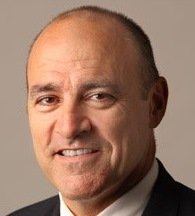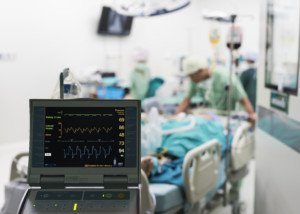If the arteries of someone with dementia beyond early stage are so blocked that coronary bypass surgery is the only hope, they’ll be denied this surgery.
This sounds like it translates to:“Granny’s arteries are so clogged she could have a massive heart attack any day, but nobody wants to operate on her because she has dementia. Instead they’re gonna just let her have a heart attack.”
Why People with Dementia, Who Desperately Need CABG, Are Not Candidates for this Surgery
CABG = coronary artery bypass grafting.
“Patients with dementia beyond the early stages (occasional confusion or forgetfulness, but otherwise functioning well) are at high risk for rapid deterioration after open heart surgery,” says Michael Fiocco, MD, Chief of Open Heart Surgery at Union Memorial Hospital in Baltimore, Maryland, one of the nation’s top 50 heart hospitals.
“The stress and sleep deprivation is devastating to this group of patients. They end up with an improved heart — but the brain becomes much worse.
“These are very difficult patients and difficult decisions to make, but any way to avoid surgery is likely in their best interest.”
CABG or open heart surgery for another procedure is difficult enough for patients with normal cognitive function.
Depending on their pre-existing personality and attitude, the patient may struggle considerably during the immediate postop period, as well as the many weeks that ensue – even though from a cognitive standpoint, they are normal.
So imagine how grueling the recovery would be for a person with moderate and especially severe dementia.
My mother had CABG when she was in her mid-80s. Preoperatively she had normal cognitive function (shopped, cooked, cleaned house, sewed, played bridge, loved crossword puzzles, traveled — did everything a “normal” person did).
But the recovery period following the surgery was brutal due to her pre-existing personality. For instance, she refused to do the cardiac rehab exercises and complained about the required water intake.
The longer-term postop period isn’t like it’s portrayed on TV.
There are new medications to take, rehab protocols and guidelines, daily cleansing of the surgical scar, follow-up appointments and more such as unforeseen events like a bed sore developing in a patient who’s spending too much time in bed once they’re back home.
If you think that the caregiver of the person with dementia will simply make sure that everything goes according to postop plan – you couldn’t be more mistaken.
I was my mother’s caregiver for three months, and it was challenging enough even though she did not have cognitive impairment.
Imagine trying to get someone with dementia beyond early stage to conform to medication intake, proper diet and hydration, and rehab exercises.
• What if they refuse to eat? My mother struggled with postop appetite suppression.
• What if they’re having new symptoms? My mother was able to answer any question about new symptoms including side effects of medications. Can a person with severe or even moderate dementia?
• Will a person with cognitive impairment even have the insight to report a new symptom? Complications from CABG can occur even after the patient returns home.
But it’s not just the longer-term postop period that’s of concern. The surgery itself can—to put things succinctly—rattle up the brain.
Coronary bypass or other heart surgery is extremely taxing on multiple bodily systems and organs. The brain is not exempt from this.
A brain that’s already compromised will come out permanently worse after the heart surgery.
If you’ve heard of people breezing through their recovery after CABG, these are likely to be individuals who are proactive about their health and embrace following doctors’ orders to a T. Most are also not 85 and probably closer to 55.
For other patients, recovery is longer and bumpier, even though those patients can still end up recovering fully – as did my mother.
Estimated Lifespan Is Considered
Depending on the level and type of dementia, a physician may determine that the patient has only a short time left, and that CABG – with a recovery that may take several months – just would not be worth it.
A patient with dementia might also have other issues such as diabetes, atrial fibrillation, poorly functioning kidneys or lung disease that would lower their surgical survival odds.
These comorbidities, along with the dementia, would factor into the consideration of the patient’s probable lifespan if they DID have the surgery.
Immediate Postop Period
Forget what you see on some TV shows like sitcoms, where a person who just had open heart surgery is lying in a bed hooked up to only an IV tube. Oh, there might be a little heart rate monitor screen nearby.
It’s nothing like that. Not only are there “machines and tubes everywhere,” but the patient may be totally out of it for many hours after they have awakened from anesthesia and are in their hospital room.
An elderly person of normal mental and age-typical physical function with no other diseases will STILL find it difficult to eat, perform simple tasks like brushing their hair and teeth, and using a toilet.
If they remain too inert following surgery (like my mother did), they will be at risk for pneumonia.
To combat this, the patient will be urged to do inhalation exercises with a plastic device – 10 times per hour.
A person with dementia not only won’t remember to do this, but may refuse to when they are reminded on the spot.
A person with considerable cognitive impairment may also try to fight off the respiratory therapist’s attempt to give the routine postop respiratory therapy.
Solution to Having Dementia and Being Denied Heart Bypass Surgery
The best solution is to begin taking care of your heart TODAY so that you never need CABG. You know the drill:
• Don’t smoke.
• Don’t drink or limit alcohol to four ounces/day for women and eight ounces/day for men.
• Avoid trans fats.
• Limit animal-based saturated fats.
• Eat plenty of “good” fats found in olive oil, nuts, seeds and fish.
• Eat only grass fed beef or wild game.
• Limit processed foods.
• Eat at least five to seven servings/day of any combination of fruits and fresh vegetables.
• Consume no more than 2,000 mg/day of sodium.
• Maintain a healthy weight.
• Exercise, exercise and do more exercise.
• Get yearly cardiology exams. You do not have to be 50 to get these.
As for dementia prevention, adhering to the above heart-health guidelines will strongly contribute to that.
What damages the heart also usually damages the brain.











































